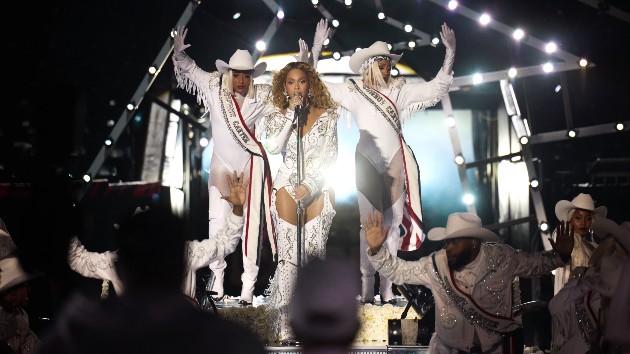People are talking about Web3. Is it the Internet of the future or just a buzzword? : NPR
Written by ABC AUDIO on November 21, 2021


Web3, brief for net 3.0, is a imaginative and prescient of the way forward for the Web through which folks function on decentralized, quasi-anonymous platforms, quite than rely upon tech giants like Google, Fb and Twitter.
Ani_Ka/Getty Pictures
disguise caption
toggle caption
Ani_Ka/Getty Pictures

Web3, brief for net 3.0, is a imaginative and prescient of the way forward for the Web through which folks function on decentralized, quasi-anonymous platforms, quite than rely upon tech giants like Google, Fb and Twitter.
Ani_Ka/Getty Pictures
There is a buzzword that tech, crypto and venture-capital varieties have change into infatuated with recently. Conversations are actually peppered with it, and you are not critical concerning the future till you add it to your Twitter bio: Web3.
It is an umbrella time period for disparate concepts all pointing within the course of eliminating the large middlemen on the web. On this new period, navigating the net not means logging onto the likes of Fb, Google or Twitter.
Consider it this fashion: The nascent days of the Web within the 1990s have been Internet 1.0. The online was seen as a technique to democratize entry to data, however there weren’t nice methods of navigating it past going to your pal’s GeoCities web page. It was fairly disorganized and overwhelming.
Then got here Internet 2.Zero beginning within the mid-2000s. Platforms like Google, Amazon, Fb and Twitter emerged to deliver order to the Web by making it simple to attach and transact on-line. Critics say over time these firms amassed an excessive amount of energy.
Web3 is about grabbing among the energy again.
“There is a small group of firms that personal all these things, after which there’s us who use it, and even if we contribute to the success of those platforms, we do not have something to point out for it,” mentioned Mat Dryhurst, a Berlin-based artist and researcher who teaches lessons at New York College on the way forward for the web.
And so, the reply, in accordance with Dryhurst and different Web3 followers, is an iteration of the web the place new social networks, engines like google and marketplaces crop up that haven’t any firm overlords.
As a substitute, they’re decentralized, constructed upon a system generally known as the blockchain, which already undergirds Bitcoin and different cryptocurrencies. Think about it as a sort of bookkeeping the place many computer systems directly host information that is searchable by anybody. It is operated by customers collectively, quite than an organization. Individuals are given “tokens” for taking part. The tokens can be utilized to vote on choices, and even accrue actual worth.

In a Web3 world, folks management their very own information and bounce round from social media to e mail to procuring utilizing a single customized account, making a public report on the blockchain of all of that exercise.
“To the typical particular person, it does feels like voodoo,” mentioned Olga Mack, entrepreneur and blockchain lecturer at College of California, Berkeley. “However whenever you press a button to modify on lights, do you perceive how the electrical energy is made? You do not have to know the way electrical energy works to know the advantages. Similar is true of the blockchain.”
Proper now, the concept of the whole Web reinventing might sound like some far-away digital utopia. However Web3 is driving new conversations — and producing lots of new money, notably from crypto traders.
‘At first baffling,’ however Web3 is rising extra mainstream and tech firms are taking word
The Web3 motion has been helped alongside by the rise of NFTs, or non-fungible tokens, that are digital collectibles and different on-line recordsdata that may be purchased and offered with cryptocurrency. Then there are the publicity stunts. Lately, a bunch of crypto fanatics banded collectively to attempt to purchase a duplicate of the U.S. Structure with digital forex. They organized underneath the title ConstitutionDAO. (A DAO stands for a decentralized autonomous group, the title for a web-based collective of crypto supporters who assemble collectively collectively in a bunch ruled by blockchains and tokens. It’s extremely Web3.)

Dryhurst admits that making an attempt to elucidate Web3 could be exasperating, since it is a loosely-defined time period that takes on a barely totally different form relying on who’s defining it however, he mentioned, that is the case with all new frontiers of know-how.
“Each new introduction of the net is at first baffling,” he mentioned.
To technologists and cryptographers, Web3 has remained a theoretical grand imaginative and prescient for years. However in latest months, the push for a blockchain-powered future has come to dominate tech conferences and social media chatter in sure circles. It is even compelled main tech firms to assemble groups devoted to Web3.
And that is introduced a sure irony to the evolution of Web3: Fanatics hope Web3 will imply that sharing photographs, speaking with buddies and shopping for issues on-line will not by synonymous with Massive Tech firms however be executed by way of a large number of small competing companies on the blockchain — the place, as an example, each time you put up a message, you earn a token to your contribution, supplying you with each possession stake within the platform and sooner or later a technique to money in.
In concept, this additionally means avoiding charges, guidelines and the strictures of tech firms. Nonetheless, main tech platforms are additionally leaping on the concept.
“It signifies that all the worth that is created could be shared amongst extra folks, quite than simply the homeowners, traders and workers,” mentioned Esther Crawford, a senior mission supervisor at Twitter.
Crawford mentioned Twitter is finding out methods to include Web3 ideas into the social community, like sooner or later with the ability to log into the social community and tweet from an account related to a cryptocurrency, not a Twitter account. She sees the long run otherwise: not a crypto model of Twitter changing Twitter. However quite Twitter introducing Web3 options on prime of normal Twitter.
“For a very long time, Web3 has been very theoretical,” she mentioned. “However now there’s a surge of momentum to construct.”
Will Web3 be the brand new norm?
Consultants say, in the very best case situation for Web3 fanatics, the know-how will function alongside Internet 2.0, not absolutely supplant it.
In different phrases, blockchain-based social networks, transactions and companies can and can develop and thrive within the coming years. But knocking out Fb, Twitter or Google fully isn’t seemingly on the horizon, in accordance with know-how students.
“I am not ready to say who will win,” Dryhurst mentioned. “However Web2 firms shall be folding Web3 concepts into their companies to remain related.”
He thinks many individuals would need to have the ability to take their information and historical past of interactions on-line wherever they go on the Web, quite than stay on singular net platforms–what some name the “walled gardens” of massive tech firms.
“It is a essentially distinction expertise than what we’re used to at the moment,” Dryhurst mentioned.
However he admits that boundless freedom can result in troubling outcomes for some.
“The Faustian discount is that the identical causes that it is thrilling that there is nothing impeding folks to construct no matter neighborhood they need, I am unable to cease somebody from constructing one thing that is hellacious,” he mentioned.
Decentralized social networks have proved appealing to white supremacists and different far-right teams, however Sam Williams, founding father of Arweave, a blockchain-based mission for storing information on-line, mentioned he trusts most small communities to find out what speech is permitted on-line.
On steadiness, he mentioned, collective voting on the foundations of engagement shall be higher than what customers expertise on main social media platforms at the moment.
“If we keep within the present paradigm, we are going to transfer additional and additional right into a realm the place a small handful of firms run by a small variety of folks run our experiences in our on-line world,” he mentioned. “And in that world, the issues of Massive Tech are exacerbated.”
One other subject, after all, is authorities oversight. Blockchain-based tokens are actually in a regulatory netherworld, however that would quickly change because the Biden administration begins the method of setting new guidelines for the business.
How does Web3 match with that different imaginative and prescient of the Web’s future — the metaverse?
Fb lately rebranded itself Meta, and mentioned its precedence can be to construct the “metaverse,” a digital future the place everybody resides and interacting and dealing collectively in digital actuality.
Among the many firm’s stated principles is “sturdy interoperability,” that means that customers might take their accounts or avatars from web site to web site or service to service seamlessly, quite than need to log in to accounts managed by separate firms each time they go to new websites.
That is additionally one of many beliefs of Web3.
However true believers say there is no such thing as a place for Fb in a Web3 world, irrespective of how exhausting the social community tries to be a part of the subsequent technology of the Web.
“Fb will at all times be incentivized to counterpoint Fb,” Williams mentioned. “And that is not how our on-line world must be ruled.”
What is the probability Web3 is simply an over-hyped fantasy?
It would not take lengthy to seek out skeptics of Web3.
James Grimmelmann, a Cornell College professor who research legislation and know-how, has change into vocal about his doubts.
“Web3 is vaporware,” mentioned Grimmelmann, referring to a product that is introduced however by no means delivered.
“It is a promised future web that fixes all of the issues folks don’t love concerning the present web, even when it is contradictory.”
He mentioned if a part of the impetus is to withstand giving up private information to Massive Tech firms, then the blockchain isn’t the answer, since that may make much more information public.
“It would not make any sense,” he mentioned. “The imaginative and prescient says the issue with the web is just too many centralized intermediaries. As a substitute of getting a number of totally different purposes and websites, we’ll put all of it on blockchains, which places it multi function place.”
To Grimmelmann, Web3 represents technologists reaching for the idealistic ethos of the daybreak of the web — everybody can freely use the knowledge superhighway! — that way back was overtaken by tech firms.
The Web’s evolution at all times has been a tug between fragmentation and centralization, he mentioned. When it swings too far in a single course, a backlash tries to drag it in the wrong way.
“Blockchains are attention-grabbing and remedy some troublesome issues in new methods,” he mentioned. “They’re most likely going to finish up within the toolkit that the subsequent web is constructed out of, however that does not imply the web goes to be constructed round them.”
However many individuals who discovered wealth in the course of the pandemic by investing in cryptocurrencies are wanting round for one thing to plunge money into past NFTs of “bored apes” who are members of a cartoon “yacht membership.”
Proper now, he mentioned, Web3, albeit largely theoretical, is the factor.
“There are lots of people who’ve cash to speculate,” he mentioned. “And so they want some imaginative and prescient to throw cash at.”
— to www.npr.org
The post People are talking about Web3. Is it the Internet of the future or just a buzzword? : NPR appeared first on Correct Success.



![News You Can’t Use: Celebrities You Didn’t Know Were Cousins [WATCH] News You Can’t Use: Celebrities You Didn’t Know Were Cousins [WATCH]](https://i.ytimg.com/vi/2dRHuNyecDM/maxresdefault.jpg)
![Black Tony’s Street Is Experiencing A Snow Storm [WATCH] Black Tony’s Street Is Experiencing A Snow Storm [WATCH]](https://i.ytimg.com/vi/IF0HTKrToQQ/maxresdefault.jpg)

